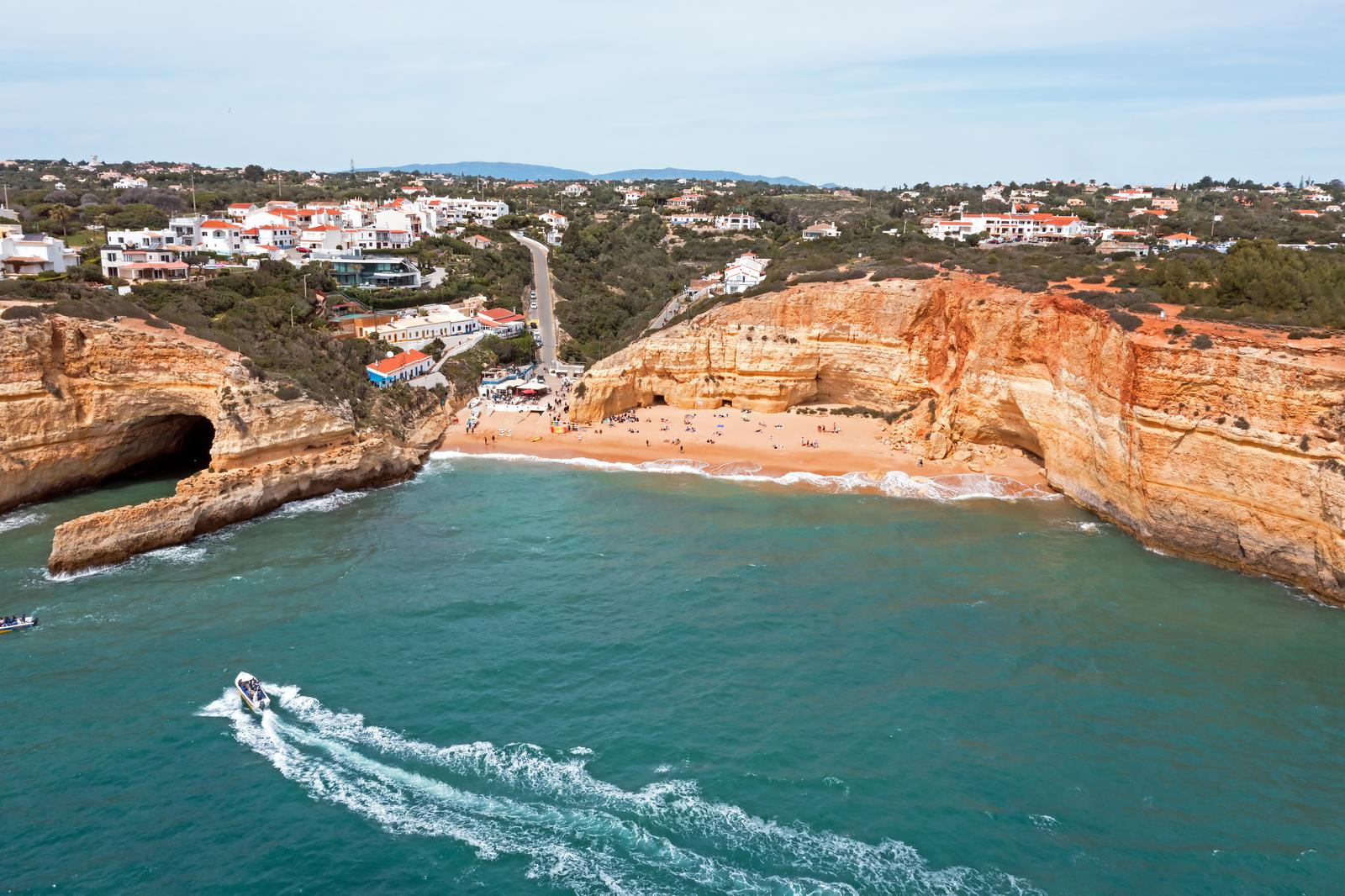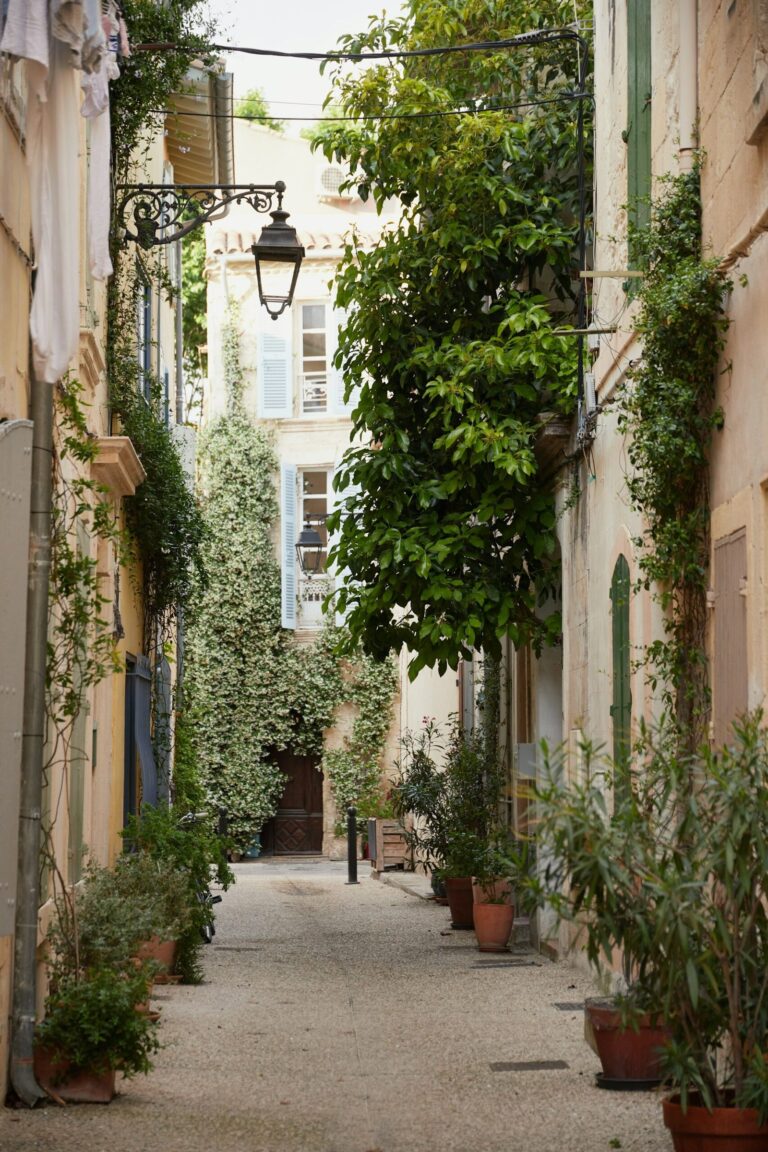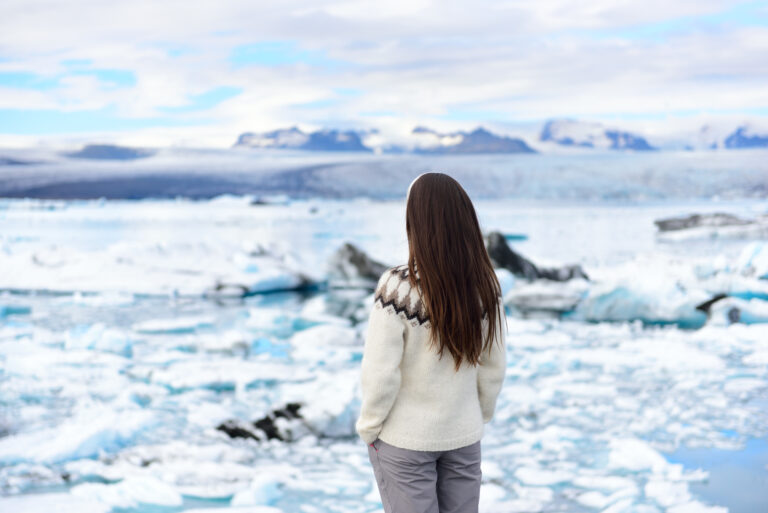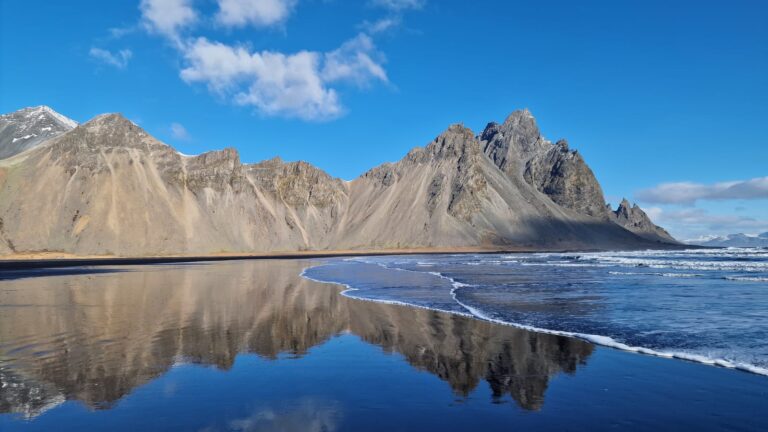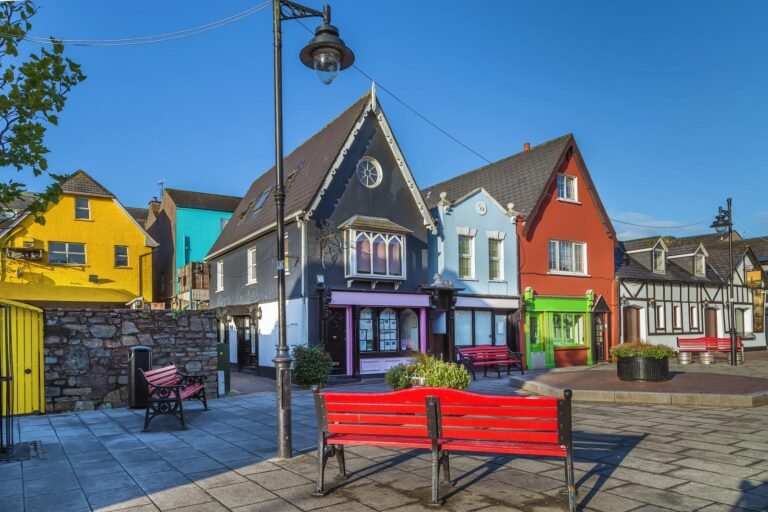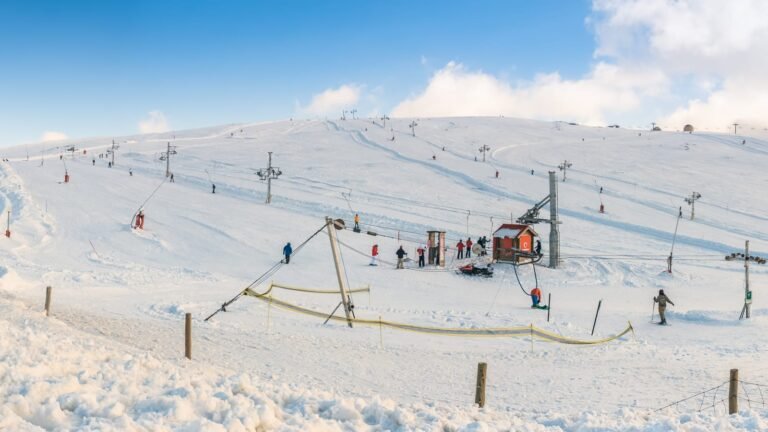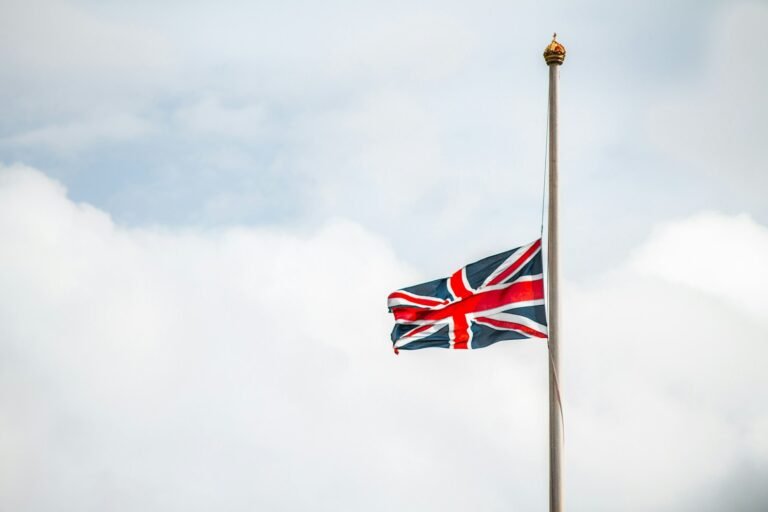Is Algarve Safe? Your Guide to Enjoying a Worry-Free Holiday
When considering a trip to the Algarve, safety is likely one of your top concerns.
The Algarve is considered a very safe destination, with a low crime rate and friendly locals who welcome tourists warmly. This beautiful region of Portugal combines stunning landscapes with a tranquil atmosphere, making it an ideal getaway for relaxation and exploration.
While pickpocketing can occur in busy tourist areas, the risks are relatively minimal compared to many other destinations.
You can enjoy walking alone at any time of day, and many visitors find the area remarkably secure.
With its inviting culture and beautiful surroundings, you’ll likely find the Algarve not just a delightful travel experience, but a safe one too. As you read further, you’ll discover practical tips and insights that will enhance your visit.
Overview of Safety in Algarve
When considering a visit to Algarve, understanding the local safety landscape is crucial. This region is often lauded for its welcoming atmosphere and low crime rates, making it an attractive destination for travelers. Here is a closer look at crime rates and how Algarve compares to other regions.
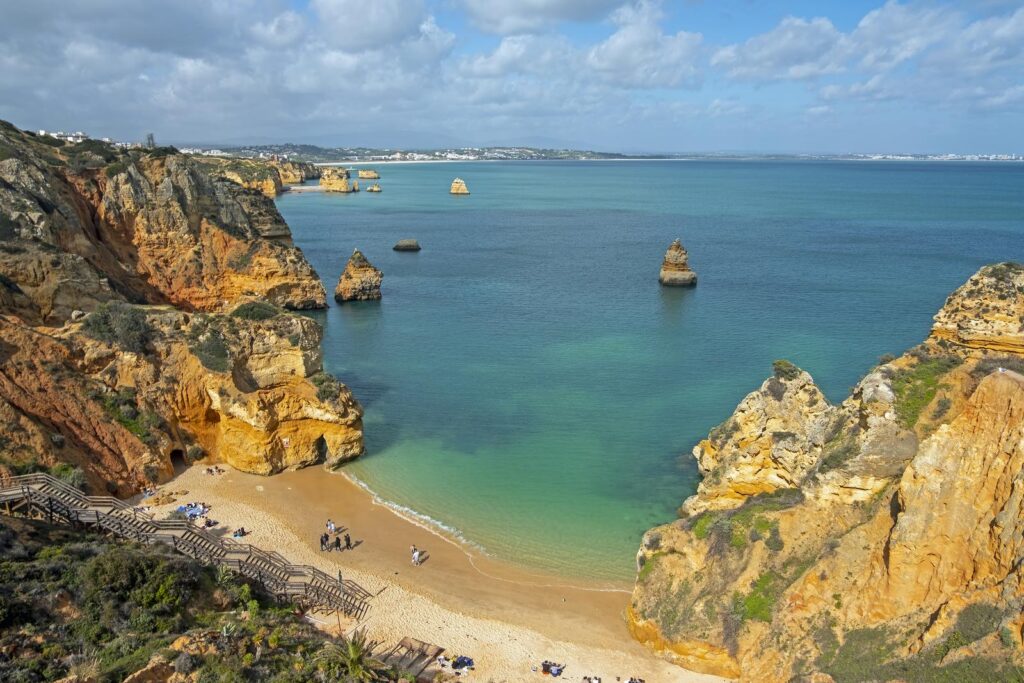
Crime Rates in Algarve
The Algarve is recognized for its lower crime rates compared to many other tourist destinations. Violent crime is particularly rare, with incidents decreasing by over 20% in the past decade.
Pickpocketing and petty theft can occur in crowded places, but they are generally infrequent. Local law enforcement works diligently to maintain a safe environment for both residents and visitors.
Safe Communities Algarve actively promotes public safety, providing resources about crime prevention. Many visitors feel secure walking around at night, especially in well-lit areas.
Always stay aware of your surroundings and take standard precautions, such as securing your belongings and avoiding isolated areas.
Comparison to Other Regions
In comparison to other regions, Algarve stands out as a safe haven for tourists. For instance, Portugal consistently ranks high on various safety indices, placing third in the Global Peace Index 2020.
Other popular tourist destinations often report higher crime rates. Algarve’s charm lies not only in its picturesque views but also in its reputation for being safer than many neighboring countries. This combination of natural beauty and security allows you to enjoy your travels with peace of mind. Sintra is another Portuguese town that’s super safe.
Travel Safety Tips for Algarve
When traveling in Algarve, keeping safety in mind enhances your overall experience. Knowing how to navigate the area, respect local laws, and access emergency services will help you enjoy your stay with peace of mind.
Transportation and Getting Around
Algarve offers various transportation options, making it easy to explore.
Public buses connect major towns and attractions, providing an economical way to travel. Ensure you check the timetable, as services can vary, especially outside peak season.
Car rentals are popular, giving you the flexibility to discover hidden gems. Make sure to carry an international driving permit and familiarize yourself with local driving laws.
Biking is another enjoyable choice, with many scenic routes available. Always follow traffic rules and wear a helmet.
Additionally, walking is safe in most areas, but stay alert, especially near busy roads.
Local Laws and Customs
Understanding local laws and customs is important for a smooth visit. Portugal has rules similar to other European countries. Drinking alcohol in public places is generally not allowed, particularly in certain towns.
Make sure to respect cultural norms. For instance, dressing modestly when visiting religious sites is appreciated. You may find locals very welcoming, so a friendly greeting in Portuguese can go a long way.
While Portugal overall is safe, petty crime like pickpocketing can occur in crowded areas. Keep your valuables secure and avoid displaying them in public.
Emergency Services and Assistance
In case of an emergency, knowing how to access help is essential.
Dial 112 for police, fire, or medical assistance. English is commonly spoken by emergency responders in tourist areas.
For non-urgent medical needs, seek out pharmacies, often referred to as “farmácias.” They can provide advice and help with minor health issues. Most towns have clinics where you can receive medical care.
If you lose your passport or have other issues, contact your embassy or consulate. Familiarize yourself with their location before you arrive to ensure quick access if needed. Staying informed helps you feel secure during your travels.
Is Algarve Safe? Common Tourist Concerns in Algarve
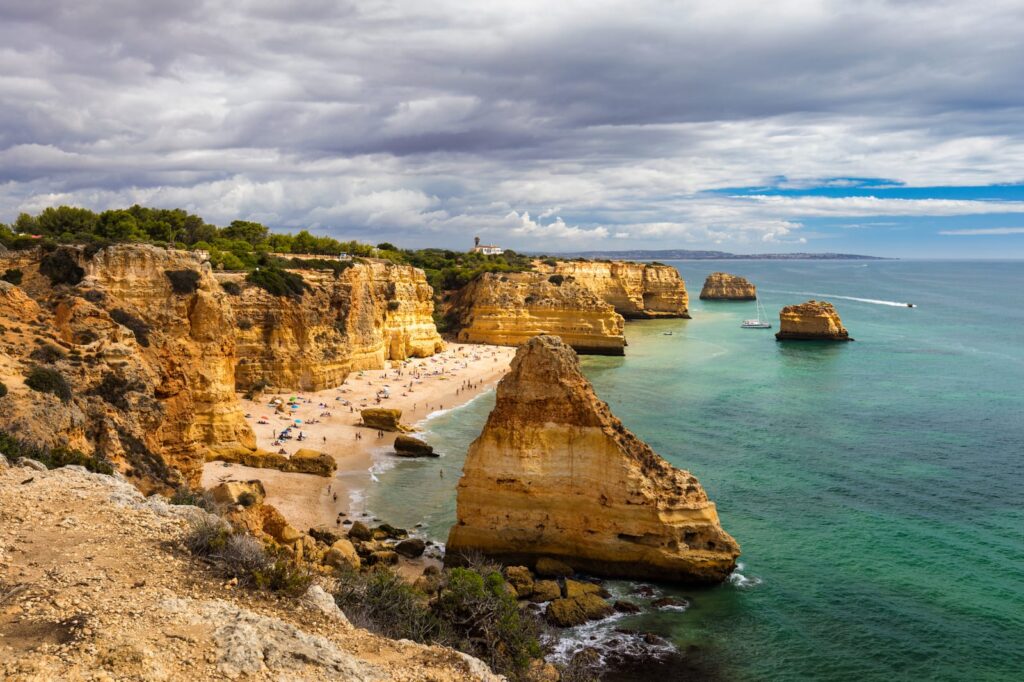
While visiting the Algarve, it’s important to be aware of certain concerns that can affect your experience. Focusing on safety, two areas that often arise for travelers include pickpocketing and theft, as well as various scams targeting unsuspecting tourists.
Pickpocketing and Theft
In crowded areas such as markets, beaches, and tourist attractions, you might encounter pickpockets. These thieves typically work in groups and can be very stealthy.
To protect yourself:
- Keep belongings secure: Use a zippered bag and keep it close to your body.
- Avoid flashy items: Leave expensive jewelry at home and keep cash and cards hidden.
- Stay vigilant: Be aware of your surroundings, especially in busy places.
If you suspect someone is trying to pickpocket you, create distance and alert local authorities if necessary. Overall, staying cautious will greatly reduce your risk.
Scams Targeting Travelers
While scams are not overly common in the Algarve, being aware of them helps ensure a smooth trip. Some prevalent scams include:
- Fake tour guides: These individuals may offer tours at suspiciously low prices. Always book through reputable agencies.
- Overpriced taxis: Ensure you agree on a fare before starting your ride or ask for the meter to be used.
- Group solicitation: Some may try to offer unsolicited help and then demand payment.
When approached with offers or deals that seem too good to be true, trust your instincts. Ask locals for recommendations to avoid falling victim to such traps. By staying informed, you can enjoy your time in Algarve worry-free.
Health and Environmental Safety
When considering safety in the Algarve, it’s important to focus on health and environmental factors. This includes the availability of medical facilities, the safety of water and food, and how to protect yourself from sun exposure and heat.
Medical Facilities in Algarve
The Algarve has a range of medical facilities that cater to both residents and tourists. Public hospitals are generally well-equipped, and there are numerous private clinics available for faster access to care.
Most cities, including Faro and Lagos, have pharmacies where you can find essential medications. In case of emergencies, dialing 112 will connect you to emergency services.
For non-emergency medical issues, booking an appointment can usually be done online or by phone. Many healthcare professionals in the region speak English, making communication easier for visitors.
Water and Food Safety
In the Algarve, tap water is generally safe to drink, but you may encounter variations. Many locals prefer bottled water, which is widely available. Always check for local advisories, especially after heavy rains.
Food safety is taken seriously in restaurants and markets. Look for establishments with high hygiene ratings. When buying fresh produce, opt for well-known markets or supermarkets. To reduce risks, wash fruits and vegetables thoroughly.
If you’re dining out, ensure that meat and seafood are cooked properly. Avoid street food vendors that seem unsanitary.
Sun Exposure and Heat
The Algarve is known for its sunny climate, making sun protection essential.
To avoid heat-related illnesses, stay hydrated and wear appropriate clothing.
Sunscreen with a high SPF is crucial, especially during peak hours from 11 AM to 4 PM. Remember to reapply every two hours, or more frequently if swimming.
It’s wise to take breaks in shaded areas, particularly if you’re engaging in outdoor activities. Know the signs of heat exhaustion, which include dizziness, nausea, and excessive sweating.
By staying aware of your surroundings and caring for your health, you can enjoy your time in this beautiful region.
Accommodation and Residential Safety
Finding the right place to stay in the Algarve is crucial for feeling secure and comfortable. Understanding how to choose safe lodging and assess neighborhood safety can enhance your overall experience.
Choosing Safe Lodging
When selecting accommodation, prioritize safety features. Look for places that offer secure entrances, good lighting, and reliable security measures.
Consider these options:
- Reputable hotels: Chains often have standardized security measures.
- Verified listings: Use trusted platforms like Airbnb, where hosts provide reviews and safety ratings.
- Research reviews: Check previous guests’ comments about safety in the area and the property itself.
Be cautious of overly low prices, as they may indicate compromises on safety. Always trust your instincts; if a place feels off, search for alternatives.
Neighborhood Safety
Assess the neighborhood before finalizing your stay. Generally, the Algarve is considered a safe region, but some areas are more secure than others.
Here’s how to gauge safety:
- Crime rates: Research local crime statistics online to understand the safety level.
- Local community engagement: A vibrant community often indicates a lower crime rate.
- Visit during the day: If possible, explore the neighborhood before booking to observe the environment.
Engage with locals or fellow travelers for insights about the area. By taking these steps, you can ensure your stay in the Algarve is both enjoyable and secure.
Cultural Insights and Respectful Travel
When visiting the Algarve, understanding and respecting local cultures can enhance your experience. Embracing local customs and making connections with residents fosters a welcoming atmosphere for everyone.
Respecting Cultural Norms
Portugal has a rich cultural heritage, and the Algarve is no exception. Dress modestly when visiting religious sites, including churches, which are common in the region.
Be mindful of local dining customs. It’s polite to greet your servers with a simple “Olá” or “Bom dia.” While tipping is appreciated, it’s not mandatory; leaving small change is often sufficient.
Lastly, familiarize yourself with local traditions, such as Festa de São João in June, where you can witness unique celebrations that showcase the Algarve’s culture. Participating respectfully can deepen your understanding and appreciation of the region.
Interacting with Locals
When engaging with local residents, a friendly demeanor goes a long way.
Start conversations with open-ended questions about their culture or recommendations for places to visit.
Listening actively can lead to meaningful exchanges. Many locals are proud to share their history and customs, so show genuine interest.
Remember to respect personal space and avoid overly loud behavior, which can be considered rude in more traditional settings. Your approach will help you build positive connections that enrich your travel experience in the Algarve.
Seasonal Considerations for Safety
When planning your trip to the Algarve, it’s helpful to consider seasonal factors that may impact safety. Each season brings its own unique conditions that can affect your travel experience.
Spring (March to May)
This is a lovely time to visit. The weather is mild, and the crowds are smaller. Just keep an eye on the weather reports, as sudden rain showers can occur.
Summer (June to August)
Summer is peak tourist season. While you’ll enjoy vibrant seaside activities, be mindful of larger crowds. Keep your belongings secure, especially at popular beach spots. Sun safety is also crucial. Stay hydrated and use sunscreen to protect your skin.
Autumn (September to November)
Autumn offers pleasant weather and fewer tourists. Some attractions may start to close for the season, so check ahead. This is a great time for outdoor activities, but always be aware of shorter daylight hours.
Winter (December to February)
If you choose to visit in winter, prepare for cooler temperatures and rain. While it’s generally safe, the fewer tourists mean some services may be limited. Make sure to check local advisories for any weather-related warnings.
Be aware of local customs and always follow safety advice from your hosts. Enjoy your time exploring the beautiful Algarve!
Safety for Specific Types of Travelers
Traveling to the Algarve can be a wonderful experience for everyone. Different traveler types may face specific safety considerations. Here’s a closer look.
Solo Travelers
If you are a solo traveler, the Algarve is generally a safe destination. The friendly locals often create a welcoming atmosphere, which can enhance your travel experience.
When exploring, opt for well-populated areas during the evening. Avoid isolated spots, especially at night, to eliminate risks. Keep a close watch on your belongings in crowded locations.
Consider staying in well-reviewed hotels or hostels that prioritize security. Many establishments offer safe storage for your valuables.
Families with Children
Families traveling to the Algarve can feel at ease. The region is known for its family-friendly activities and accommodations.
Choose accommodations that cater to children, such as resorts with kid’s clubs or pools. Always ensure safety protocols are in place. For instance, many beaches now have capacity limits to ensure a safe environment.
When in crowded areas, avoid losing sight of your children. Teach them basic safety rules, like staying close and looking out for each other.
Additionally, public parks and attractions are typically monitored to ensure a secure environment.
Emergency Contacts and Resources
When visiting the Algarve, it’s important to have emergency contacts readily available. Here are key resources to help you stay safe.
Emergency Numbers:
- Police (GNR): 112
- Fire Department: 112
- Ambulance Services: 112
For more specific needs, here are local hospital contacts:
| Location | Phone Number |
|---|---|
| Faro | 289 891 100 |
| Lagos | 282 770 100 |
| Portimão | 282 450 330 |
| Red Cross (Faro) | 289 899 900 |
You can also find emergency pharmacies listed in local press publications.
Local Health Centers:
Each town has a Health Centre (Centro de Saúde) for non-emergency medical situations.
If you’re at the beach, ensure you follow safety signage and check for warning flags.
Knowing where to get help will make your stay more comfortable and secure.
For additional beach safety guidelines, visit resources like Safe Communities Portugal.
By being prepared, you can enjoy your time in the Algarve while knowing help is just a call away.

